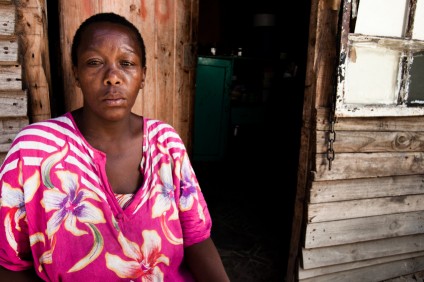I just finished reading ‘The New Reproductive Regimes of Truth,’ a chapter in Alison Phipps outstanding book The Politics of the Body: Gender in a Neoliberal and Neoconservative Age.
Phipps explains her project:
In this chapter, I have introduced what I see as the new reproductive ‘regimes of truth’: the consensus around ‘normal birth’ and ‘breast is best’ which dominates policy, academia and the activist field… [A]gendas which began in feminist efforts to empower women have now been transformed into messages which can put pressure on mothers in a number of different ways while excluding other caregivers. In my analysis, I have attempted to apply the principle of intersectionality: seeing the new reproductive activism as largely a politics of white, middle-class women with abundant cultural, social and economic capitals, I have explored how such agendas might intersect with the politics of class and ‘race’ and access to economic, social and cultural resources.
[pullquote align=”right” cite=”” link=”” color=”” class=”” size=””]Where would natural childbirth and breastfeeding advocates be without poor women to exploit?[/pullquote]
There is a great deal of intellectual meat to chew on, but what struck me most forcefully was the central importance of class and race in natural childbirth and breastfeeding advocacy. Specifically, natural childbirth advocates and lactivists identify with an exoticized view the poor indigenous Other (generally black or brown), and simultaneously distinguish themselves from the poor industrialized Other (both black and white) whom they conceptualize as ignorant and lazy.
Complementing this focus on the ‘natural’, there is a tendency to search for authenticity and origins in the discussion of alternative birth practices. This … often involves the Orientalizing of ‘traditional’ cultures, whether prehistoric or from developing countries. American childbirth educator Judith Lothian describes her Lamaze class as modelling ‘traditional ways of passing information about birth from generation to generation’, and advice to mothers to pursue on-demand or extended breastfeeding often makes reference to the fact that these practices are common outside the West, but without highlighting pertinent differences in culture and lifestyle.
Natural childbirth and breastfeeding advocates are channeling Grantly Dick-Read’s notions of “primitive” women, but:
… Like the claims of many contemporary activists, however, Dick-Read’s points were made despite the fact that he had not spent extensive time in non-western countries. The lack of an evidence base to corroborate such assertions is particularly problematic when non-western birthing practices are appropriated in the service of authenticity rather than effectiveness.
Contrast that with the view of poor women in their own countries:
… [W]omen who choose childbirth interventions or formula feed (who are largely from working-class and minority ethnic groups) [are] presented as ignorant and lazy or at best in need of education (which feeds racist and classist stereotypes). A generous formulation is that women lack the confidence to give birth without technology and need to be educated to trust themselves … Less judiciously, British activist the Alpha Parent blogs that formula companies ‘exploit the lazy’ –women who ‘can’t be bothered’ –by claiming their products are convenient.
The surprising paradox is that natural childbirth and breastfeeding advocates claim to emulate poor indigenous women, whom they view as authentic and close to nature, while simultaneously demonizing poor women in their own countries whom they stigmatize as too ignorant to recognize the birth and breastfeeding “regimes of truth,” and too lazy to employ them when they learn of them.
The notion that women who have different preferences in childbirth and infant feeding are both ignorant and slothful justifies the beloved preoccupation of natural childbirth and breastfeeding advocates with the coercion of “informed choice.”
Within this framework of compulsory empowerment through ‘informed choice’, deviant behaviours are positioned as being a product of ignorance or weak-mindedness, rather than affirmative choices in favour of an alternative. This is clear in Lothian’s question: ‘why are women seemingly uninterested in choosing normal birth, in spite of our best efforts?’
Phipps concludes:
… [A]lthough birth and breastfeeding activists have a tendency to present themselves as counter-cultural, and identify themselves with global Others in their appropriation of ‘traditional’ practices, there is little attention paid to the stigmatizing effect this might have upon our own social Others, the working-class and minority ethnic women who may choose birth interventions or infant formula for a variety of structural reasons.
Natural childbirth and lactivism aren’t about babies, but rather are about privileged women and how they wish to see themselves, especially in contrast to the poor Other. It makes you wonder: where would natural childbirth and breastfeeding advocates be without poor women and their misfortunes to exploit?


